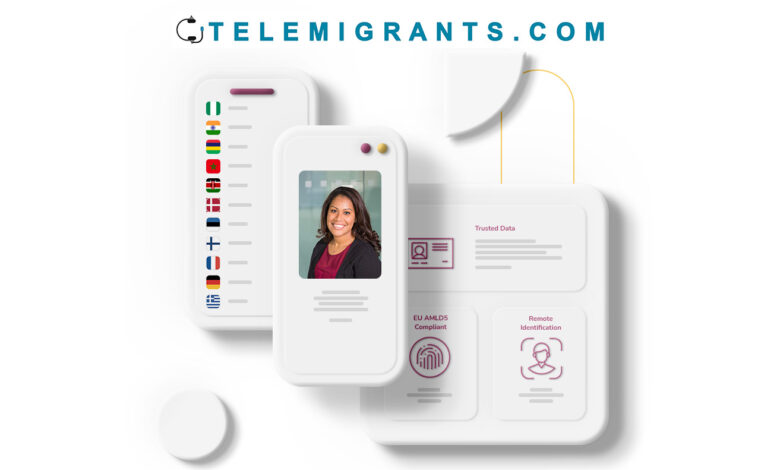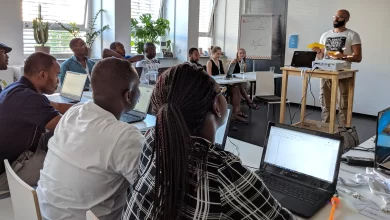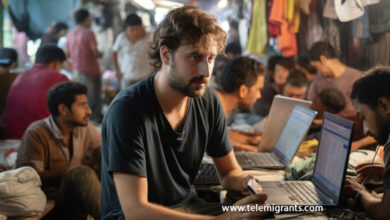Compliance and Legal Framework for Remote Work
How to ensure proper working compliance for telemigrants

Over the last two years, the world of work has witnessed a significant change as a result of the global pandemic that overwhelmed the world leading to major economic recessions orchestrated by deliberate government-imposed lock-downs resulting to a new transformative work life where employees resulted to working from home even for organizations that believed it impossible to allow their workers work remotely; new normal as we call it today has emerged as further sustained by different automated work platforms, virtual collaborations and a digitized workforce which aligns with the position of the International Labor Organization (ILO) that, work from home arrangement today, has become an unexpected experiment that has managed to break the traditional barriers of working life and technology.
Obviously, remote working and teleworking weren’t commonplace terminologies in the world of work prior to now; a reason even the Occupational Safety, Health and Working Conditions Code of 2020 didn’t capture it in its definition of what a working place entails. According to the OSH Code, a working place of employees as an “establishment” which refers to the physical working place of employees without recognizing work from home or teleworking as the working place of an employee which puts relevant questions of safety and health of workers working outside a physical establishment of a company alongside other questions of compliance and adherence to rules of remote employee (telemigrants) engagement are left unattainable.
However, as remote working continues to take center stage, labor experts are beginning to challenge the old normal right from the limited definition of what a working place should be. That the term “establishment” should have a broadened meaning to align with the changing structure of the world of work especially to take into consideration that more and more organizations are adapting to the remote working or teleworking conditions, therefore the term “establishment” could mean anywhere conducive enough to get the work done whether at the office or home.
GLOBAL LEGAL AND COMPLIANCE ISSUES WITH REMOTE WORKING
Gloomily, there is still a lacuna in the legal and compliance level for teleworkers and hiring organizations contract across the globe though in various degrees. In advanced countries of America and Europe, there seems to be a considerable compliance level in hiring and managing remote workers than it is for developing countries of Africa, Asia and South America. In most developing countries, there has not been any formal legal framework guiding the remote working condition of their citizens. It’s still within the informal working space for most developing countries. However, the need to immediately bring some level of compliance and legal framework in the teleworking space is getting momentum among labor experts in developing.
For instance, in Nigeria, the most populated African country, an attempt to bring decorum has been made by various agencies notable among them is the Employment and Immigration Practice Team of the Law Crest LLP led by the principal Partner, Ose Okpeku, in his presentation on “Remote Working: Key Legal Considerations for HR Function” to the HR and Legal Departments of Nigerian Breweries Plc. Highlights of the presentation indicated the need to immediately tackle key burning legal issues associated with remote working as an integral part of a business continuity plan as responds to the global pandemic, and the practical measures that should be implemented in addressing the issues.
With reference to the Home Work Convention, 1996 of the International Labor Organization, the 2002 EU Framework Agreement for Teleworking and the Teleworking Enhancement Act, 2010 enacted in the USA (the “Frameworks”) that constituted the major drivers of teleworking prior to 2020, in addition to the effects of digital explosion, the gap in the Nigerian Compliance and legal framework for teleworking is obvious as there has not been any government enacted law to this effect except for organized private sectors. Equally, as for many other developing countries, the issues of data protection, risks of data security breach, balancing the remote employee’s constitutional rights of privacy and the need to adequately monitor the remote employee’s official correspondence for quality control as well as issues revolving around liability for injuries sustained by employees while working remotely are major issues confronting teleworkers in developing nations.
Across the globe, there are a good number of countries that have legislated on remote working in a bid to create a legal framework and compliance for telemigrants including Spain, Finland, The United Kingdom, Australia, New Zealand, Singapore, Angola, Argentina, Belgium, Brazil, Chile, Colombia, Greece, Luxembourg, Mexico, Norway, Portugal, Russia, Slovakia, Taiwan, Turkey, Ukraine, etc. All of which regardless of their different degree of compliance and legal framework, agrees that remote working deserves fair treatment as you would treat every employee by all standard.
ENSURING PROPER COMPLIANCE FOR TELEMIGRANTS
Globally, and in line with the international best practices, it is expected that hiring organizations from advanced countries should endeavor to put in place approved legal framework and compliance when hiring remotely from developing countries. For instance, both the Code on Social Security, 2020 (CSS) and the international definitions of ILO of “home-based work”, “remote work”, “telework”, “work at home”, “information and communications technology” etc. should be considered in dealing with remote workers regardless of their location just as such definitions like “establishment”, “employment injury”, and other related provisions should be aligned with the concept of work from home to provide security to the employees in a work from the home setup.
Equally, the issue of pay variations where remote workers are paid less for jobs they would have received a higher pay if they worked from office is another serious issue of compliance in line with the international best practice. For instance the Code on Wages, 2019 (CoW) reported that companies have cut the pay of their remote employees since the global pandemic, particularly during and after the second wave. Therefore, it is important to amend the exclusive legal framework for remote working so that employees get the promised salaries, and companies are under the express liability to pay their employees with a contractual obligation.
Furthermore, to ensure that the laws pertaining to work from home are effective and efficient, it is essential that issues specific to work from home set up, such as these questions below, are carefully answered by all players:
- How do we measure the time of work and conduct of work by the employee in a remote work environment in relation to their wage structure?
- What measures are available to protect employees from injury, damages, losses, etc., in a work from home set up as well as requirement on employers to provide the necessary equipment, connectivity, seating arrangement and periodic risk assessment?
- Who is responsible for the maintenance of equipment provided to employee in work from home contract, and regulation of equipment use and privacy issues?
- How will issues of misconduct and harassment of various degrees be evaluated in the remote working environment?
- How do we ensure the maintenance of confidentiality, exclusivity of the working environment of the remote employees during working hours, including restriction on moonlighting, data theft, confidentiality breach, reverse engineering, etc.?
- How do you ascertain if a candidate is qualified to work remotely in their countries?
To address these issues, hiring organizations are now encouraged to work with remote work platforms and organizations that are compliant to these international labor practices for remote working and teleworking workforce to avoid any legal issues especially when the hire is across continents.
My name is Faith Nwaobia (Dr.) I am a social analyst and social entrepreneur leading a youth-focused social enterprise Youthup Global. I write regularly on LinkedIn.
.




